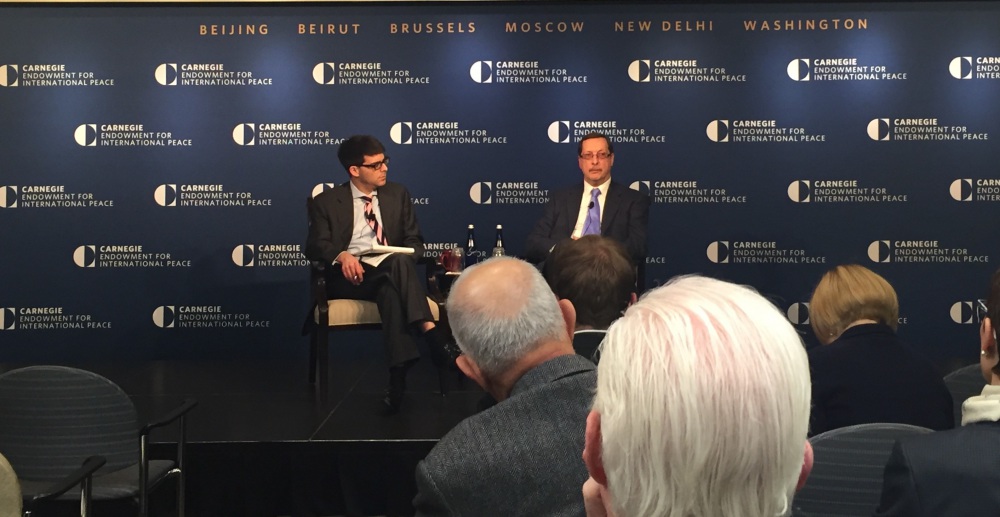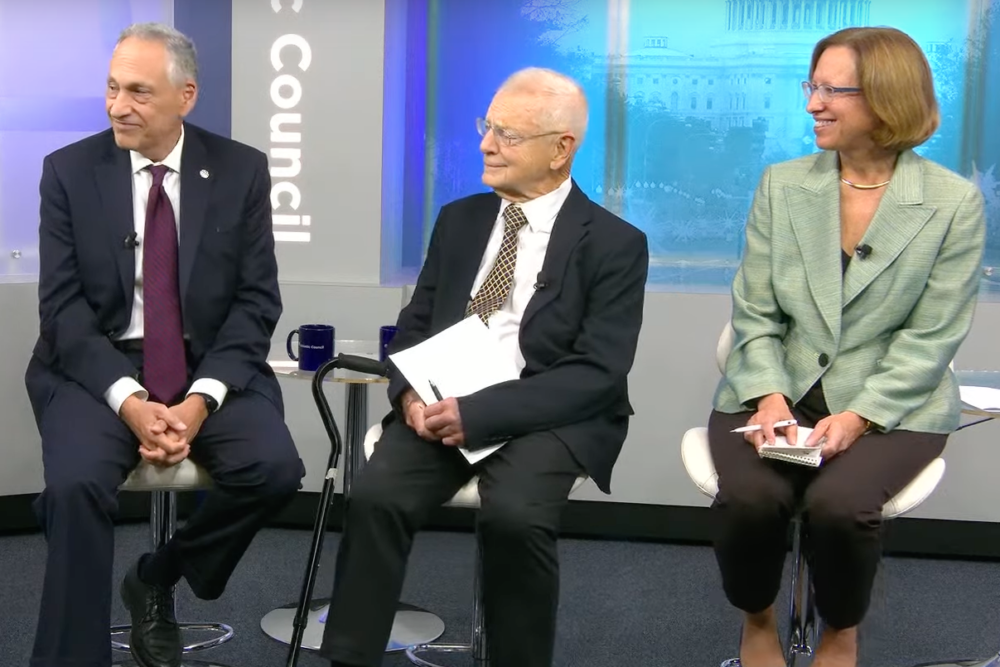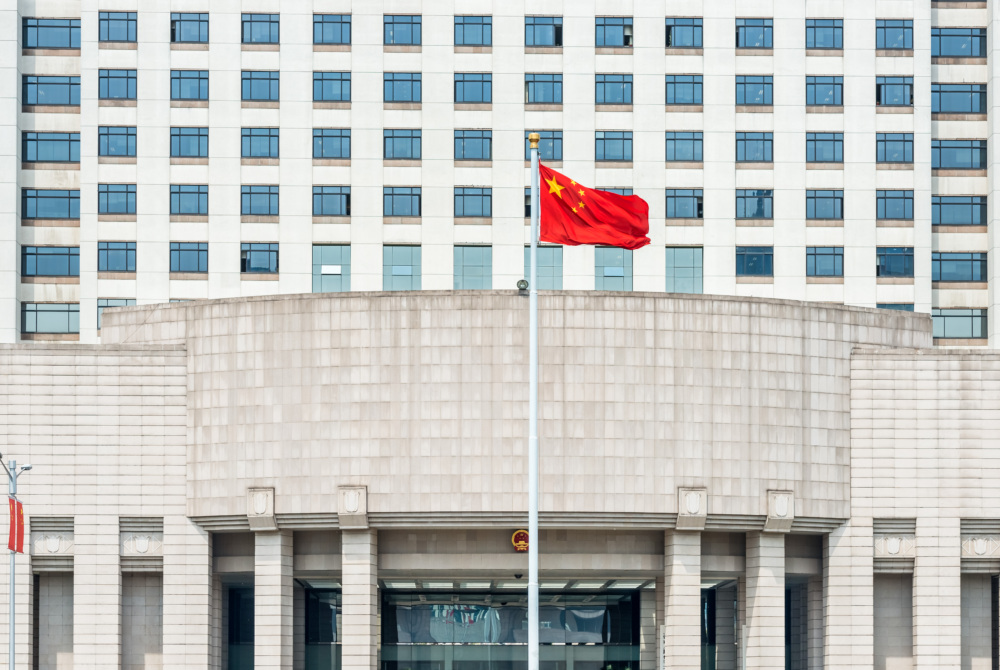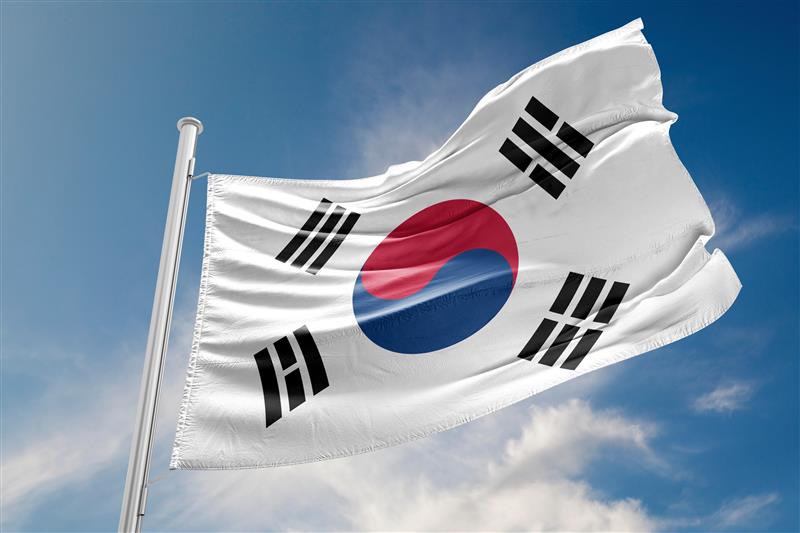
Meaghan Webster
Communications Manager
Atomic Pulse
What is Russia’s position on the use of tactical nuclear
weapons? Would Russia perceive a cyber-attack as the beginning of a nuclear
conflict? NTI board member Alexey Arbatov joined James Acton at the Carnegie
Endowment for International Peace last week for a discussion about these and
other questions related to the increased risk of nuclear war. Arbatov leads the
Center for International Security of the Institute of World Economy and
International Relations (IMEMO) of the Russian Academy of Sciences; Acton is
co-director of Carnegie’s Nuclear Policy Program.
The
discussion sought the Russian perspective on
the risk of nuclear war and how it is affected by tensions related to
non-nuclear weapons. For example, Acton asked Arbatov if Russia’s placement of
nuclear and conventional forces in the same military locations—known as “entanglement”—is
a deliberate strategy to deter an attack by the United States. Arbatov said no
– that unlike China, which may have deliberately co-mingled its forces, Russia has
“entangled” its forces to save resources. He added that to separate them would
be a good idea in theory but would be too expensive for Russia in practice.
Acton also asked Arbatov to comment on Russia’s position on
the use of tactical (smaller) nuclear weapons, referencing a Russian
nuclear policy document published in 2010 that appeared to consider such
weapons a viable option for use in a military conflict. Arbatov acknowledged
the international unrest that the release of this document caused at the time,
noting that tactical nuclear weapon use has not appeared in any official
military doctrine since. “The Russian military doesn’t repeat it, but they also
do not deny it,” Arbatov said.
With arms control agreements between the U.S. and Russia stalled,
an audience member asked what the two countries might do to improve relations
until agreements can be approached again. Arbatov suggested that it would be
helpful for nuclear and military policy experts from both countries to discuss
de-escalation strategies together behind closed doors. “This should not be a
scholastic exercise,” Arbatov added, “but should be part of a real strategy
negotiation.”
Another audience member asked how Russia would react to a
non-nuclear attack in cyber form. Would that be perceived as the beginning of a
nuclear conflict? Arbatov said that Russia has not ever officially linked cyber
conflict to nuclear conflict – largely because everything related to cyber
policy is regarded as “top secret” in Russia. Regardless, “it would not provoke
a nuclear retaliation,” Arbatov suggested, noting that any cyber-attack likely would
come from a non-state actor attempting to sow conflict between the U.S. and
Russia.
And how does Russia feel about the recently approved Nuclear
Ban Treaty? Arbatov answered by joking that he may be the only person in Russia
to have said something positive about the ban. The ban is viewed in Russia as a
dangerous development – one thing on which he says the U.S. and Russia can
agree.
Arbatov ended the discussion by reminding the audience that
although “this discussion we’ve been having would seem madly crazy to anyone out
there on the street,” it’s important to discuss the potential for nuclear
conflict in order to prevent it from ever occurring.
Sign up for our newsletter to get the latest on nuclear and biological threats.
Lynn Rusten, vice president of NTI’s Global Nuclear Policy Program, shares her reaction to the 2023 Strategic Posture Report during a panel event at the Atlantic Council.
Amid uncertainty around China’s expanding nuclear program and silence from Beijing about the intent behind the build-up, a new report offers details about China’s nuclear program that suggest significant implications for U.S. and global security.
When it comes to nuclear weapons and the Korean Peninsula, nearly all the attention goes to North Korea, but a public debate is heating up south of the demilitarized zone, with some officials in South Korea asking: Should Seoul pursue a nuclear weapons program, too?



